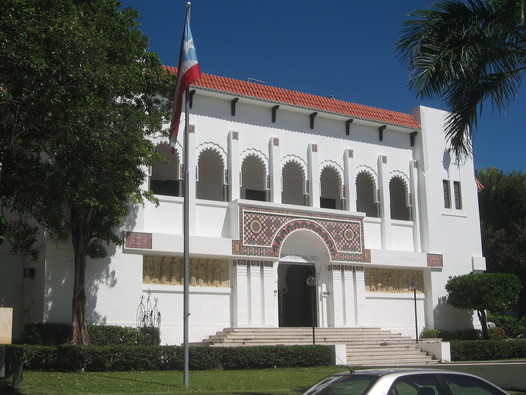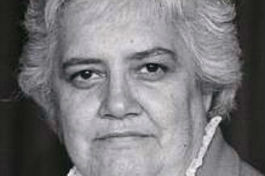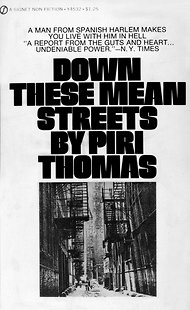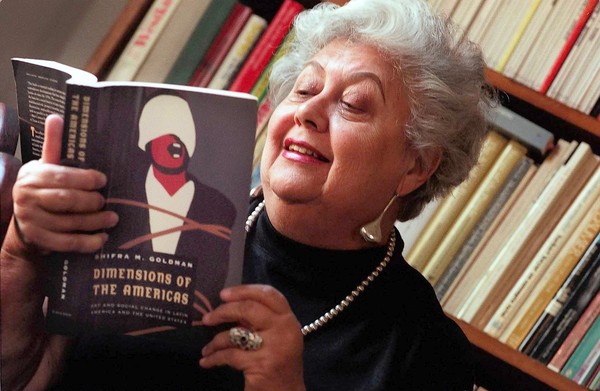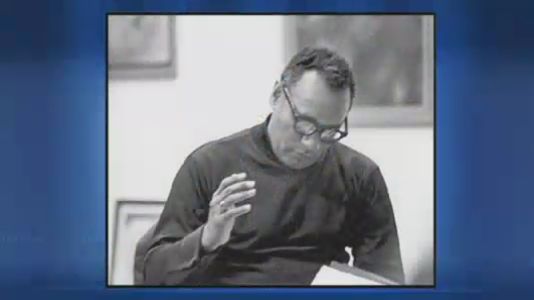We are using BING’s translator to reproduce this text in English and look further into this in the near future. But read on and learn about a new pressing matter in Puerto Rico, the threatened closing of one of the nation’s oldest cultural institutions el Ateneo Puertorriqueño. English translation follows the original Spanish text.
¡PUERTORRIQUEÑOS — Y LOS QUE APOYAN LOS DERECHOS CULTURALES DE LOS PAISES!
En el día de ayer, la representante del PNP, Sra. Liza Fernández, radicó el proyecto de Ley RC de la C 1270 que adjunto, para quitar TODOS LOS FONDOS que por Ley recibe el Ateneo Puertorriqueño y obligarlo a cerrar.
Se esperaba que el proyecto bajase como descargue en la noche del cierre de la actual sesión legislativa.
Les explico un poco los antecedentes.
Existe una Ley, desde 1935, enmendada consecuentemente desde entonces que garantiza al Ateneo Puertorriqueño para sus operaciones, empleados y cuido de sus colecciones artísticas y bibliográficas la cantidad de $500,000 (que dicho sea de paso fue aumentado de $300,000 a $500,000 por la entonces presidenta de la Cámara, Zaida “Cucusa” Hernández con votación unánime en los dos cuerpos.). La ley es la Ley 224 del 18 de agosto de 2003.
La fiscalización del uso de dichos fondos está en manos del Contralor quien en varias ocasiones ha felicitado al Ateneo por la pulcritud y claridad de sus informes.
Esta asignación está consignada en el Presupuesto Operacional de Gastos del país y aprobada para este año sin corte o enmienda alguna. Por lo que se supone que dicho dinero le fuera entregado al Ateneo en el mes de julio una vez comenzara a regir el nuevo año fiscal. Esta es la hora en que el Departamento de Hacienda no les ha entregado el cheque.
Los empleados no han cobrado, las deudas de agua y luz se montan, y se ha resuelto estar abiertos con ayudas y donativos de aquí y de allá porque es la Casa de la Patria y esta no debe cerrar NUNCA.
En varias investigaciones que allegados del Ateneo han hecho, penetrando en algo el silencioso muro del Gobierno, se ha descubierto que existe una “conspiración” para que dicho cheque no sea entregado. Y que dicha conspiración viene de los “altos” poderes de La Fortaleza.
Ahora aparece este proyecto de Liza Fernández, cuyas gestiones iniciaron en septiembre de este año, para quitar los fondos y dárselos al Centro Médico, (en una oposición muy compleja de combatir pues se quiere dirigir la atención a que el Ateneo se pelee fondos con los niños enfermos, como si ese fuese el único dinero que existe.)
En la Exposición de Motivos esta representante acusa al Ateneo de hacer expresiones políticas, alejándose de su deber cultural. Adjunto las expresiones del Ateneo a las que ella se refiere.
Es decir, que todo el trabajo cultural desde 1876, casi 140 años, que el Ateneo ha hecho en defensa de los valores patrios, la formación de estudiantes (en este momento más de 90 estudiantes del Conservatorio de Arte Dramático del Ateneo se quedarían sin sus clases), la defensa del Idioma español, la defensa del pueblo viequense, la preservación de obras artísticas, la tribuna libre de ideas en la que se han expresado los más importantes intelectuales del país, el fondo editorial, el Archivo Nacional de Teatro y Cine único en el país, van a sucumbir porque el Ateneo ha hecho “expresiones políticas”. Liza Fernández no sabe lo que es el Ateneo, porque una de las secciones del Ateneo es precisamente esa, la de Ciencias Políticas, en este momento dirigida por José Javier Colón Morera, hijo del patriota Noel Colón Martínez.
Así, el Ateneo tiene secciones de literatura, teatro, cine, ciencias físicas, artes plásticas, historia y música, en las que se discute cada uno de estos temas y por supuesto, su relevancia “política” en la actualidad del país.
Violentando la autonomía de las instituciones culturales fundadas desde los tiempos de España, Fernández cree que puede adjudicar la única labor cultural del país al ICPR.
Pues es importante destacarle que en aras de esa tribuna libre, uno de los principales defensores del Ateneo lo fue Don Luis A. Ferré, quien fue socio de toda la vida del Ateneo. Al punto de que cuando Pedro Rosselló amenazó con reducir los fondos del Ateneo en su primer cuatrienio, fue Don Luis Ferré quien públicamente le señaló que “el Ateneo no se toca, por lo que esa institución significa para el país, su historia y su cultura”. Rosselló le obedeció y nada sucedió entonces.
Allí, en la tribuna del Ateneo, han hablado Pedro Rosselló, Carlos Romero Barceló, Ricky Rosselló, muchos legisladores penepés y estadistas, muchos de ellos que constituían la Comisión de Status del Ateneo.
Allí han hablado Luis Muñoz Marín, Rafael Hernández Colón, Aníbal Acevedo Vilá, entre muchos otros. Y de los pipiolos e independentistas, muchos más.
Esta casa es signo de la Nación Puertorriqueña, no un kiosko cultural de collarcitos y piraguas como pretende adjudicarle este proyecto.
El Presidente del Ateneo lo es el Dr. José Milton Soltero, el vicepresidente lo es el poeta nacional Hamid Galib, el secretario lo es el dramaturgo Roberto Ramos-Perea y los demás miembros lo son distinguidos intelectuales del país, como el compositor William Ortiz, el cineasta Pepe Orraca, el Dr. Egdar Quiles Ferrer, la periodista Enid Routté, el Lcdo. Daniel Nina, el Dr. Carlos Severino, la Dra. Vivian Auffant, el Lcdo. Arturo Ríos (ex líder estudiantil), el Lcdo. José Soltero, el editor Elizardo Martínez, la Prof. Haydee Venegas, y el pasado Presidente el Lcdo. Eduardo Morales Coll. Todos comprometidos de manera en extremo seria y responsable con lo que esta institución significa para los más caros valores del país, según reza en los estatutos de su fundación en 1876, de la mano de los padres de la Patria, Don Alejandro Tapia y Rivera, Manuel Elzaburu Vizcarrondo, Manuel Corchado y Juarbe, Salvador Brau, José Julián Acosta, Román Baldorioty de Castro, José de Diego y sus distinguidos socios históricos José Celso Barbosa, Federico Degetau, Francisco Amy, Luis Muñoz Rivera, entre otros muchos “políticos” que desde 1876 se expresaron de maneras políticas” en el Ateneo.
Se ha sabido que el Representante Antonio “Toñito Silva, ha sido en extremo cooperador, al punto de llamar él mismo al Secretario de Hacienda inquiriéndole por qué no se había dado el cheque, sin recibir respuesta alguna.
En la estación Boricua 740 con Luis Penchi, Silva mismo admitió que había “alguien” deteniendo el desembolso.
La senadora Evelyn Vázquez, presidenta de la Comisión de Educación y Cultura del Senado, también fue cooperadora, y se encontró con una intriga en Hacienda donde le dijeron “que el Ateneo había rechazado ese dinero”. Ella pidió esta afirmación por escrito y todavía la está esperando.
Los senadores populares son solidarios y están consternados con esto.
Si destruyen el Ateneo, destruyen lo más sagrado de la Patria Puertorriqueña.
Estemos pendientes de las acciones que se desarrollarán en apoyo al Ateneo Puertorriqueño y que serán convocadas por su Junta de Directores.
Un socio del Ateneo
—
Prof. Roberto Ramos-Perea
Director General del Archivo
Nacional de Teatro y Cine
Rector del Conservatorio de Arte Dramático
Ateneo Puertorriqueño
POBOX 9021180
San Juan de Puerto Rico 00902-1180
ramosperea@gmail.com
ENGLISH TEXT
PUERTO RICANS – AND THOSE WHO SUPPORT THE CULTURAL RIGHTS OF COUNTRIES!
On the day yesterday, the representative of the PNP, Ms. Liza Fernández, lay draft law RC C 1270 attached, to remove all the funds by law receives the Puerto Rican Ateneo and forcing it to close.
It was expected that the project down as a download on the night of the closure of the current legislative session.
I explain a little background.
There is a law, since 1935, consequently amended since that guarantees the amount of $500,000 to the Puerto Rican Athenaeum for its operations, staff and caring for their artistic and bibliographic collections (that I might add was increased from $300,000 to $500,000 by the then President of the Chamber, Zaida “Cucusa” Hernandez by unanimous vote in the two bodies.). The law is the law 224 of 18 August 2003.
The control of the use of these funds is held by the controller who on several occasions has congratulated the Ateneo on the neatness and clarity of their reports.
This mapping is contained in the operational budget of expenditure of the country and adopted for this year without cutting or amends any. For what it is supposed that such money was handed over to the Ateneo in the month of July, a time began to govern the new fiscal year. This is the hour in which the Department of Finance has not delivered them the cheque.
Employees have not claimed, debts of water and light are mounted, and be open with grants and donations from here and there because it is the home of the fatherland and this must not close never has been solved.
In several investigations that relatives of the Ateneo have done, penetrating into something the silent wall of the Government, he has been discovered that there is a “conspiracy” to ensure that this check is not delivered. And that that plot comes from the “high” powers of the fortress.
Now appears this project of Liza Fernandez, whose efforts began in September of this year, to remove the funds and give them to the Medical Center (in opposition very complex fighting because we want to draw attention to the Ateneo was pelee funds with sick children, as if that were the only money that exists.)
In the explanatory memorandum, this representative accuses the Ateneo to political expressions, away from its cultural duty. I enclose expressions of the Ateneo to which it refers.
Namely, that all the cultural work from 1876, nearly 140 years, the Ateneo has made in defense of national values, the training of students (currently more than 90 students from the Conservatory of dramatic art of the Ateneo remain without their classes), defense of the Spanish language, defense of viequense people, the preservation of works of art, the discussion forum of ideas that have been expressed the most important intellectuals of the country, the editorial background, the national archives of theater and cinema only in the country, will succumb because the Ateneo has made “political expression”. Liza Fernandez does not know what is the Ateneo, because one of the sections of the Ateneo is precisely that, of political science, currently directed by Jose Javier Colón Morera, son of Patriot Noel Colón Martínez.
Thus, the Ateneo has sections of literature, theatre, cinema, physical sciences, fine arts, history and music, which discusses each of these issues and of course, his “political” significance today in the country.
Breaking the autonomy of cultural institutions founded since the times of Spain, Fernandez believes that it can be awarded the only cultural work in the country to the ICPR.
It is important to note that for the sake of this gallery free, one of the main proponents of the Ateneo was Don Luis a. Ferré, who was a partner in the life of the Ateneo. To the point that when Pedro Rosselló threatened to reduce the funds of the Ateneo in his first four years, was Don Luis Ferré who publicly stated you that “the Ateneo not touched, so that this institution means for the country, its history and its culture”. Rosselló obeyed you and nothing happened then.
There, in the Gallery of the Ateneo, have spoken Pedro Rosselló, Carlos Romero Barceló, Ricky ROSSELLO, many legislators penepés and statesmen, many of them constituting the Ateneo Status Commission.
There they have spoken to Luis Muñoz Marín, Rafael Hernández Colón, Aníbal Acevedo Vilá, among many others. And the pipiolos and independence, many more.
This House is a sign of the Puerto Rican nation, not a kiosk cultural collarcitos and canoeing as it seeks to assign this project.
The President of the Ateneo is Dr. José Milton Soltero, the Vice President is the national poet Hamid Galib, Secretary is playwright Roberto Ramos Perea and other members you are distinguished intellectuals of the country, as the composer William Ortiz, filmmaker Pepe Orraca, Dr. III Quiles Ferrer, journalist Enid Routté, Esq.. Daniel Nina, Dr. Carlos Severino, DRA. Vivian Auffant, Esq.. Arturo Ríos, Esq. (former student leader). José single, editor Elizardo Martínez, Prof. Haydee Venegas, and past President Atty.. Eduardo Morales Coll. All committed way in extreme serious and responsible with what this institution means to the highest values of the country, as it reads in the statutes of its foundation in 1876, the hand of the fathers of the fatherland, Don Alejandro Tapia and Rivera, Manuel Elzaburu Vizcarrondo, Manuel Corchado and Juarbe, Salvador Brau, José Julián Acosta, Román Baldorioty de Castro”, José de Diego and his distinguished historical partners José Celso Barbosa, Federico Degetau, Francisco Amy, Luis Muñoz Rivera, among other many”politicians”that since 1876 were expressed in political ways” in the Ateneo.
Has been known to representative Antonio “Toñito Silva, has been extremely cooperative, to the point of calling him same to the Secretary of the Treasury inquiriendo you why had not given the cheque, without receiving any reply.”
Station Boricua 740 with Luis Penchi, same Silva admitted that there was “someone” stopping the disbursement.
Senator Evelyn Vazquez, Chairman of the Committee on education and culture of the Senate, was also a cooperative, and met with an intrigue in finance where told him “that the Ateneo had rejected that money”. She requested this statement written and is still waiting.
The popular senators are supportive and are dismayed with this.
If destroyed the Ateneo, they destroy the most sacred of the Puerto Rican homeland.
We are awaiting the actions to be conducted in support to the Puerto Rican Ateneo and which shall be convened by its Board of Directors.
One member of the Ateneo – Prof. Roberto Ramos Perea Director General of the national archives of theatre and cinema Rector at the Conservatory of dramatic art Ateneo 9021180 Yahoo.com Puerto Rican San Juan, Puerto Rico 00902 – 1180 ramosperea@gmail.com
